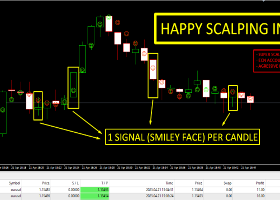Heard on the Street is a classic Wall Street interview Q&A book. Many of the questions you will hear in real interviews will have been "borrowed" or modified from this book. In fact, many interviewers want to see that you've done the necessary "grunt work" just by reading through it! The book contains five main sections - Quantitative/Logical Questions, Derivatives Questions, Financial Economics Questions, Statistics Questions and Non-Quantitative Questions. Each of these five areas is incredibly important for the aspiring quant. The questions are by no means straightforward - there are some particularly challenging statistics and quantitative questions. Make sure to study this book thoroughly before taking an interview on the 'Street.
2) Frequently Asked Questions in Quantitative Finance - Paul WilmottPaul Wilmott is known for his stimulating, engaging and humourous works on quantitative finance. He has also applied his talents to writing an interview Q&A book, in Frequently Asked Questions in Quantitative Finance. So, what does the book cover and is it worth an investment, especially if you already own Paul Wilmott on Quantitative Finance? Its main advantage is that it provides both a short and long version of an answer to a particular 'FAQ'. This means that the book can be scanned rapidly, if you wish to gain a quick insight into certain topics. Talking of topics, the book covers predominantly Stochastic Calculus, Geometric Brownian Motion, Black-Scholes as well as Volatility Modelling and the CAPM. This book is definitely one for the shelf at home, prior to heading into that dreaded interview room.
3) Quant Job Interview Questions And Answers - Mark S. Joshi, Nick Denson, Andrew DownesSome time ago, Mark Joshi wrote a fantastic PDF article about getting a job in quantitative finance and what to expect prior to, and during, an interview. This book is a significant expansion and elaboration on that article, with the inclusion of more technical questions and further discussions on the "soft" questions. The book covers the interview process, options pricing, probability, rates, numerical methods, general mathematics, C++ and brainteasers. It contains many questions not seen before in other books and is significantly more up to date than some. It was Joshi's first attempt at self-publishing and the experiment worked very well. Pick this up if you're looking for help with different technical questions or more insight into what the interview, and subsequent job, will be like.
4) A Practical Guide To Quantitative Finance Interviews - Xinfeng ZhouZhou's book is another self-published work (in the vein of Joshi). Be aware that it has been criticised on the basis of less-than-professional editing and formatting. However, leaving those quirks aside, it does contain more than 200 fantastic questions on topics that a quant will likely be asked about in interview. The book covers a broad range of categories such as calculus/linear algebra, brainteasers (many varieties here!), probability and combinatorics, stochastic processes, finance/options and numerical methods. If you still think you need more practice after the aforementioned works by Crack, Wilmott and Joshi, Zhou will provide that practice!
5) Starting Your Career as a Wall Street Quant: A Practical, No-BS Guide to Getting a Job in Quantitative Finance - Brett JiuDr Jiu's book is a little different from the four mentioned above. It contains a more philosophical approach to obtaining a quantitative role. He is keen to stress that the market has changed significantly since the 2007/2008 crisis, with more roles now being available on from funds and less from banks. The other major shift described is that of the necessity to have extremely strong programming skills, particularly C++. The first four chapters discuss a quant career as well as how to being hunting for one, finally concluding with tips for interview. The next set of chapters encourage one to self-learn and provide detail on how to go about achieving that, while at different stages of your career. Finally, Dr Jiu discusses "real world" skills, such as internship opportunities or networking. This is a great book to complement the other four and QuantStart highly recommends purchasing a copy.



